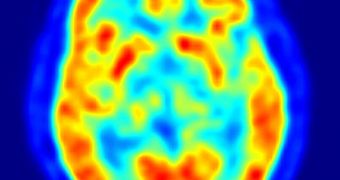Psychopathy is apparently characterized by a series of brain abnormalities, a team of UK experts from the King's College London explains. In a new study, they were able to confirm that this condition represents a distinct subgroup of the broader antisocial personality disorder (ASPD).
Details of the study and its conclusion were published in the latest issue of the esteemed medical journal Archives of General Psychiatry. KCL Institute of Psychiatry expert Nigel Blackwood, MD, was the lead author of the paper.
The team behind the study is careful to differentiate between people with ASPD and what they call true psychopaths. Individuals in the latter category tend to use aggression to get what they want, and feel no empathy or remorse for their actions.
Statistically speaking, the vast majority of violent crimes are carried out by males suffering from ASPD. The same data indicate that only 33 percent of these individuals also suffer from psychopathy (ASPD+P), PsychCentral reports.
Researchers hypothesized that the brains of psychopaths were different from those of normal people some time ago, but thus far no study looked at potential differences between the brains of psychopaths and individuals with ASPD.
For the new study, experts analyzed a population of violent offenders who had ASPD, and used Magnetic Resonance Imaging (MRI) to scan their brains. The team learned that psychopaths displayed structural abnormalities in their social brains, compared to ASPD test subjects.
In other words, Blackwood says, a clear difference was found between the brains of ASPD and ASPD+P individuals. “We describe those without psychopathy as hot-headed and those with psychopathy as cold-hearted,” the team leader explains.
“The cold-hearted psychopathic group begin offending earlier, engage in a broader range and greater density of offending behaviors, and respond less well to treatment programs in adulthood, compared to the hot-headed group,” he goes on to say.
“We now know that this behavioral difference corresponds to very specific structural brain abnormalities which underpin psychopathic behavior, such as profound deficits in empathizing with the distress of others,” Blackwood concludes.

 14 DAY TRIAL //
14 DAY TRIAL //